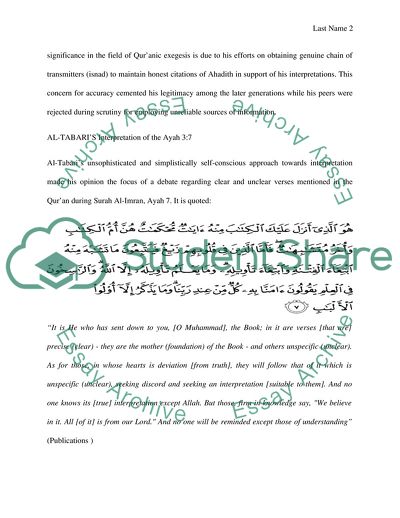Cite this document
(The Glorious Quran by Al-Tabari Essay Example | Topics and Well Written Essays - 2250 words, n.d.)
The Glorious Quran by Al-Tabari Essay Example | Topics and Well Written Essays - 2250 words. https://studentshare.org/religion-and-theology/1845023-al-tabari-interpret-of-the-quran-that-refers-to-clear-and-unclear-verses
The Glorious Quran by Al-Tabari Essay Example | Topics and Well Written Essays - 2250 words. https://studentshare.org/religion-and-theology/1845023-al-tabari-interpret-of-the-quran-that-refers-to-clear-and-unclear-verses
(The Glorious Quran by Al-Tabari Essay Example | Topics and Well Written Essays - 2250 Words)
The Glorious Quran by Al-Tabari Essay Example | Topics and Well Written Essays - 2250 Words. https://studentshare.org/religion-and-theology/1845023-al-tabari-interpret-of-the-quran-that-refers-to-clear-and-unclear-verses.
The Glorious Quran by Al-Tabari Essay Example | Topics and Well Written Essays - 2250 Words. https://studentshare.org/religion-and-theology/1845023-al-tabari-interpret-of-the-quran-that-refers-to-clear-and-unclear-verses.
“The Glorious Quran by Al-Tabari Essay Example | Topics and Well Written Essays - 2250 Words”. https://studentshare.org/religion-and-theology/1845023-al-tabari-interpret-of-the-quran-that-refers-to-clear-and-unclear-verses.


